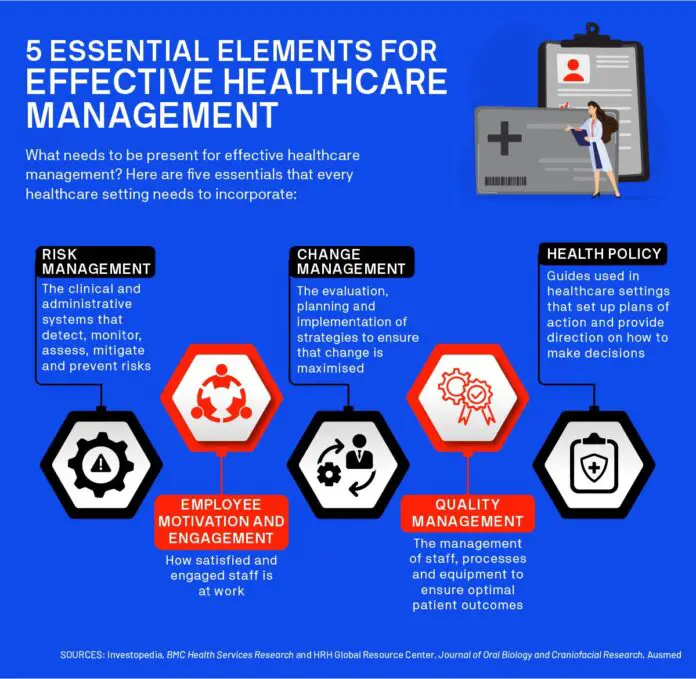The Benefits of Pursuing a Masters in Healthcare Administration
1. Overview of Healthcare Administration
What is Healthcare Administration?
Healthcare administration involves managing the daily operations of healthcare facilities such as hospitals, clinics, and long-term care facilities. Professionals in this field ensure that the healthcare organization is running efficiently and effectively.
2. Importance of Masters in Healthcare Administration
Why Pursue a Masters in Healthcare Administration?
A master’s degree in healthcare administration provides the advanced knowledge and skills needed to excel in leadership positions within the healthcare industry. It also opens up opportunities for career advancement and higher earning potential.
3. Curriculum and Coursework
What Courses are Typically Included in a Masters in Healthcare Administration Program?
The curriculum for a masters in healthcare administration program typically includes courses in healthcare management, healthcare finance, healthcare policy, quality improvement, and strategic planning. Students may also have the opportunity to specialize in areas such as informatics or long-term care management.
4. Career Opportunities
What Career Opportunities are Available with a Masters in Healthcare Administration?
Graduates with a masters in healthcare administration degree can pursue a variety of leadership roles in healthcare organizations, such as healthcare administrator, healthcare manager, healthcare consultant, or healthcare policy analyst. They may work in hospitals, clinics, government agencies, or consulting firms.
5. Salary Potential
What is the Average Salary for Professionals with a Masters in Healthcare Administration?
According to the Bureau of Labor Statistics, the median annual wage for medical and health services managers was $104,280 in May 2020. However, salaries can vary depending on factors such as location, experience, and the size of the healthcare organization.
6. Job Outlook
What is the Job Outlook for Professionals with a Masters in Healthcare Administration?
The demand for healthcare administrators is expected to grow by 32% from 2019 to 2029, much faster than the average for all occupations. This increasing demand is driven by the aging population and the need for healthcare services.
7. Skills and Qualities
What Skills and Qualities are Important for Success in Healthcare Administration?
Professionals in healthcare administration need to have strong leadership, communication, analytical, and problem-solving skills. They should also be able to work well under pressure, make critical decisions, and adapt to changes in the healthcare industry.
8. Networking Opportunities
How Can a Masters in Healthcare Administration Help with Networking?
Graduate programs in healthcare administration often provide students with opportunities to network with healthcare professionals, alumni, and potential employers. Networking can lead to job opportunities, mentorship, and professional growth in the healthcare industry.
9. Professional Development
How Does a Masters in Healthcare Administration Support Professional Development?
A masters in healthcare administration program can help professionals develop the knowledge, skills, and competencies needed to succeed in leadership roles within healthcare organizations. It also provides opportunities for continuing education and professional growth.
10. Conclusion
Overall, pursuing a masters in healthcare administration can be a rewarding and fulfilling career choice for those interested in healthcare management and leadership. The advanced knowledge and skills gained from this degree can open up a wide range of career opportunities and help professionals make a positive impact on the healthcare industry.
References
- Bureau of Labor Statistics – Medical and Health Services Managers
- Healthcare Administration and Management Program Guide
- American College of Healthcare Executives
FAQ
What are the admission requirements for a Masters in Healthcare Administration program?
Admission requirements for a masters in healthcare administration program typically include a bachelor’s degree, letters of recommendation, a statement of purpose, and GRE or GMAT scores. Some programs may also require relevant work experience in healthcare.
Is a Masters in Healthcare Administration worth it?
Yes, a masters in healthcare administration is worth it for individuals looking to advance their career in healthcare management and leadership. It can lead to higher earning potential, increased job opportunities, and the chance to make a positive impact on the healthcare industry.




